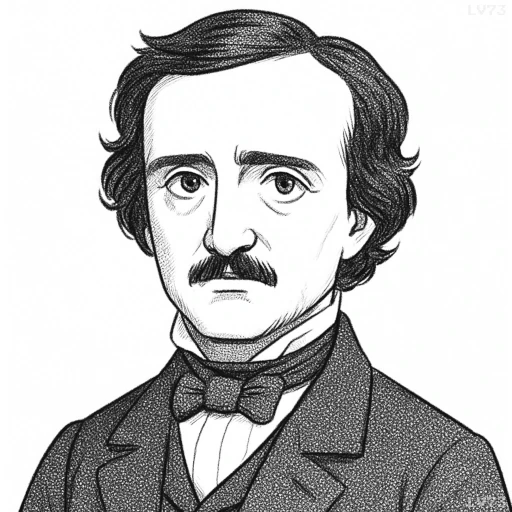“Were I called on to define, very briefly, the term Art, I should call it ‘the reproduction of what the Senses perceive in Nature through the veil of the soul.’ The mere imitation, however accurate, of what is in Nature, entitles no man to the sacred name of ‘Artist.'”

- January 19, 1809 – October 7, 1849
- American
- Novelist, poet, critic
table of contents
Quote
“Were I called on to define, very briefly, the term Art, I should call it ‘the reproduction of what the Senses perceive in Nature through the veil of the soul.’ The mere imitation, however accurate, of what is in Nature, entitles no man to the sacred name of ‘Artist.'”
Explanation
In this quote, Edgar Allan Poe defines Art as the process of reproducing the world around us, but with an added emotional or spiritual filter—what the senses perceive through the “veil of the soul.” This idea suggests that true art is not merely about mimicking reality but about interpreting and transforming what is observed, infusing it with the artist’s inner experience, feelings, and insights. The “veil of the soul” signifies the unique lens through which each artist processes the world, adding depth, meaning, and personal expression. Poe emphasizes that imitation alone, no matter how accurate, does not elevate someone to the status of an artist—there must be a deeper, more authentic interpretation of the world in the creation of art.
Poe’s statement reflects his Romantic views on the nature of creativity and art. The Romantic Movement prized individual expression, imagination, and the artist’s ability to convey the inner emotional landscape. While earlier traditions valued technical skill and the accurate reproduction of reality, Poe suggests that Art transcends mere replication, focusing instead on the interpretation and emotional resonance that the artist brings to the work. This idea underscores the belief that the role of the artist is to engage with the world not as a passive observer, but as someone who actively filters and redefines reality, creating something that reflects the soul of both the artist and the world around them.
In modern contexts, this quote can be seen as a reminder that true art is more than just visual accuracy or technical proficiency. Whether in painting, writing, music, or any other medium, the artist’s vision, personal interpretation, and emotional involvement are what truly elevate a work of art. This view challenges the contemporary emphasis on perfection or realism in art and encourages us to appreciate the depth and soul behind the work. It also suggests that in today’s world of digital manipulation and mass production, art still requires that personal touch—the individual perspective and emotional connection that transforms ordinary images or sounds into something profoundly meaningful.
Would you like to share your impressions or related stories about this quote in the comments section?


